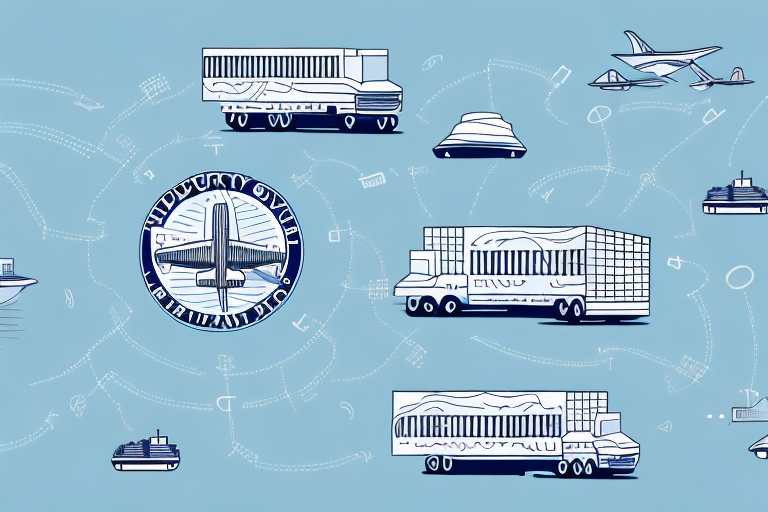What is a Transportation Management Services Agreement (TMSA)?
A Transportation Management Services Agreement (TMSA) is a pivotal contract between a transportation service provider and a customer, outlining the management of transportation services. It delineates the roles and responsibilities of each party involved in the transportation process. The primary objectives of a TMSA include optimizing transportation services, reducing costs, and enhancing efficiency within the supply chain.
Understanding the Benefits of a TMSA
Benefits for Customers
- Improved transparency in the transportation process
- Enhanced tracking and monitoring of goods
- Reduction in transportation costs
- Mitigation of risks through increased safety and compliance
Benefits for Service Providers
- Increased operational efficiency
- Better resource allocation
- Improved management of drivers
- Enhanced revenue streams
Additionally, a TMSA fosters overall safety and compliance within the transportation industry by standardizing processes and procedures. This ensures that operations adhere to regulatory requirements and industry best practices, leading to a reduction in accidents and incidents, as well as improved driver training and performance.
How TMSA Streamlines Transportation Management Services
A TMSA streamlines transportation management by establishing clear communication channels, performance metrics, and operational procedures between the customer and the service provider. This agreement outlines responsibilities such as pickup and delivery schedules, equipment maintenance, and problem resolution, thereby reducing errors and delays and enhancing supply chain efficiency.
Real-Time Tracking and Visibility
TMSAs provide real-time tracking and visibility of shipments, enabling customers to monitor their cargo throughout the transportation process. This capability helps identify potential issues early, allowing for proactive problem-solving and reducing the risk of delays or cargo damage.
Optimized Routes and Cost-Effective Solutions
With access to a network of carriers and transportation modes, TMSAs enable the optimization of routes and the selection of the most cost-effective and efficient options. This not only saves time and money but also contributes to reducing the environmental impact of transportation.
Factors to Consider When Implementing a TMSA
Business Size and Type
When implementing a TMSA, it is crucial to consider the type and size of the business, as these factors influence service provider capabilities and transportation requirements.
Technology and Software Needs
Assessing the need for transportation management software and technology tools is essential to support the TMSA effectively. Advanced software can enhance tracking, reporting, and overall management of transportation services.
Training and Support
Ensuring that staff responsible for managing transportation operations are adequately trained on the TMSA is vital. Ongoing support from the service provider helps in the effective and efficient use of the system, addressing any issues promptly.
The Role of TMSA in Supply Chain Optimization
TMSAs play a critical role in optimizing the supply chain by streamlining transportation management, reducing costs, and improving efficiency. The partnership created by the agreement fosters greater communication, transparency, and collaboration between the customer and the service provider.
Enhanced Supply Chain Performance
By optimizing transportation processes, TMSAs contribute to improved supply chain performance, better inventory management, and faster delivery times.
Data-Driven Decisions
Real-time visibility and data analytics enabled by TMSAs allow companies to identify trends and areas for improvement, facilitating informed decision-making and continuous enhancement of supply chain operations.
Key Components of a Successful TMSA Agreement
Performance Metrics and Operational Procedures
A successful TMSA should include clear performance metrics and operational procedures to ensure that both parties meet their responsibilities effectively.
Dispute Resolution and Communication Protocols
Including mechanisms for dispute resolution and establishing robust communication protocols are essential for maintaining a healthy working relationship and addressing issues promptly.
Flexibility and Adaptability
The agreement should allow for flexibility to adapt to changing transportation needs, including provisions for termination or modification if necessary.
Safety, Security, and Sustainability
Incorporating safety and security measures, such as background checks for drivers and secure loading procedures, is crucial. Additionally, addressing environmental sustainability by using fuel-efficient vehicles and reducing emissions promotes responsible transportation practices.
Top Providers of Transportation Management Services in the Market
Choosing the right transportation management service provider is essential for the success of your TMSA. Some of the top providers in the market include:
When selecting a provider, consider factors such as cost, reliability, customer service, and specialization in specific industries or transportation modes. Conduct thorough research and compare multiple providers to ensure the best fit for your business needs.
Advantages and Disadvantages of Outsourcing Transportation Management Services
Advantages
- Cost savings through reduced operational expenses
- Improved efficiency with access to advanced technology
- Access to industry expertise and specialized knowledge
- Ability to focus on core business activities
Disadvantages
- Reduced control over the transportation process
- Potential integration issues with existing systems
- Risk of service provider failure affecting operations
Before deciding to outsource, carefully weigh these advantages and disadvantages to determine if it aligns with your business strategy and operational goals.
How to Negotiate a Favorable TMSA Agreement
Comprehensive Needs Analysis
Begin negotiations by conducting a thorough analysis of your transportation needs and budget constraints. Understanding your requirements ensures that the agreement aligns with your business objectives.
Flexible Terms and Performance Metrics
Include provisions for flexibility, performance metrics, and clear dispute resolution mechanisms. Ensure that transportation rates are fair and that the service provider has the necessary resources and capabilities.
Building a Strong Relationship
Establish a positive working relationship with the service provider through open communication, regular feedback, and prompt issue resolution. Regularly review the TMSA to ensure it remains effective and relevant.
By following these steps, you can negotiate a TMSA that meets your transportation needs and budget while ensuring high-quality service from the provider.
Common Challenges in Implementing a TMSA and How to Overcome Them
Integration with Existing Systems
Integrating a TMSA with existing systems can be complex. Utilizing compatible technology tools and seeking support from the service provider can facilitate a smoother integration process.
Establishing Communication Protocols
Maintaining clear and consistent communication between the customer and service provider is essential. Regular meetings and updates help in addressing issues promptly and ensuring alignment of goals.
Ensuring Regulatory Compliance
Staying compliant with regulatory requirements is crucial. Implement standardized procedures and conduct regular audits to ensure that all operations adhere to necessary regulations.
Employee Training and Awareness
Providing comprehensive training to employees about the TMSA's importance and functionality can reduce resistance and enhance adoption. Highlighting the benefits of the system encourages employee buy-in and efficient use.
Managing Complexity
Breaking down the TMSA implementation into manageable steps and prioritizing critical areas can help organizations handle complexity effectively. Focusing on specific goals and achieving measurable results can motivate progress and facilitate successful implementation.








